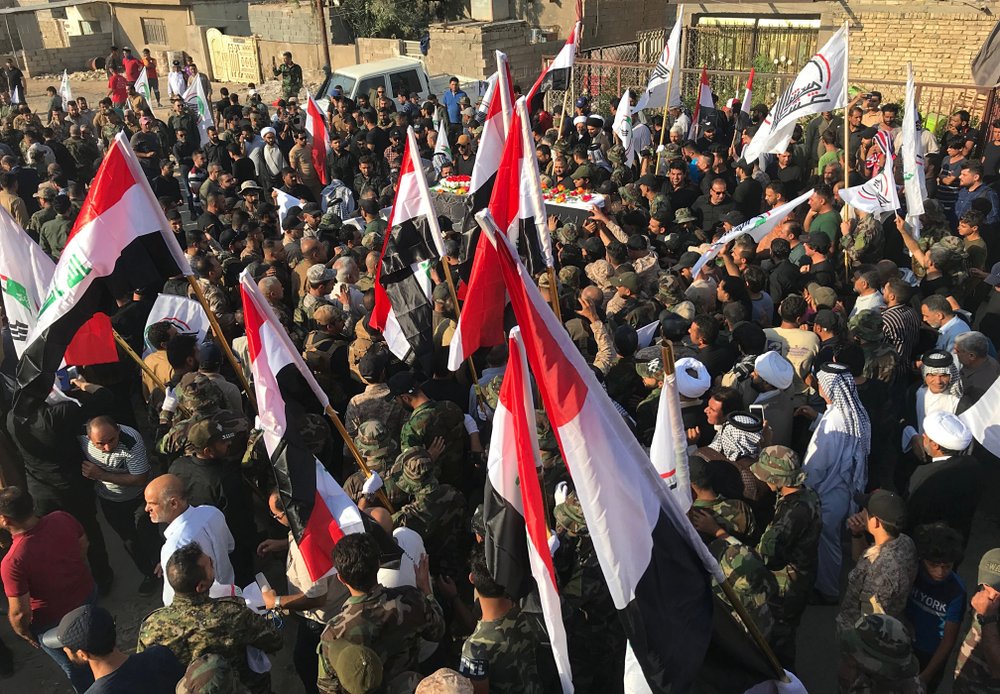In a provocative act, Israel has once again carried out attacks on its neighboring countries in the last two days. Targets in Lebanon, Syria and Iraq were bombed by Israeli forces in complete violation of all established international laws. The acts of aggression, which can lead to yet another war in the region, have been justified by the Israeli prime minister, Benjamin Netanyahu. Calling these attacks “defensive”, he claimed that they were carried out to target pro-Iranian groups operating in these countries.
However, he failed to give any concrete evidence for his claims. It is widely speculated that this recent surge in aggressive acts is intended to shore up support for Netanyahu, who is facing a second election in September after failing to win a majority in the last elections in April. The attacks can boost his prospects against his nearest rival Benny Gantz, who is giving him a tough fight.
It is also speculated that Israel wants to escalate tensions in the region in order to provoke Iran to initiate a war which will eventually drag in the United States. Israel seeks to take advantage of the rising tensions between Iran and the Donald Trump administration, following the US’ withdrawal from the 2015 nuclear deal and its subsequent imposition of sanctions on Iran. Israel’s targeting of Iranian allies, such as Hezbollah, and militias in Iraq is designed to provoke a retaliation from Iran.
Netanyahu has been taking advantage of the war in Syria to target its military installations. Iran’s presence in the Syrian war, on behalf of Bashar al-Assad, has provided Israel the opportunity to allege that Iran is aiding groups with arms and training, with the intention of targeting Israel.
Israel has carried out hundreds of attacks in Syria in the last couple of years. However, the attacks have seen a surge in recent times. The airstrike on Saturday was claimed to have been undertaken to prevent the ‘imminent drone attack’ on Israel. The attack on the outskirts of the capital city of Damascus killed five people.
The attack on Beirut was the first since the 2006 ceasefire. Hezbollah’s office in the city was targeted by two Israeli drones on Sunday. Israel also targeted forces belonging to the Popular Front for the Liberation of Palestine – General Command (PFLP-GC) in Lebanon, near the Syrian border on Monday.
Michel Aoun, the president of Lebanon, has called the attacks a “declaration of war” and has resolved to defend itself against all kinds of aggression. Hasan Nasrallah, the chief of Hezbollah, has issued the threat of retaliation as well.
The attacks on Iraq were the first in decades. Israel had last attacked Iraq in 1981, to destroy an alleged nuclear reactor that it claimed Saddam Hussain was building at the time. On August 25, a drone attack was carried out in the western Iraqi city of Qaim which killed three people. The deceased belonged to the Popular Mobilization Force, a militia allegedly supported by Iran.
Israel considers Iran a formidable enemy due to its support for Palestinians’ right to self-determination and its rising influence in the region. Iran’s success in building allies in different countries in the region is considered a deliberate policy of encirclement by Israelis. However, Iran has never tried to initiate a confrontation with Israel so far, with all the attacks being initiated by the latter.
The attacks on Sunday led to widespread protests in Iraq. Given the explicit support of the US to Israel, the protesters demanded the withdrawal of US forces from the country. The attacks have put a question mark on Trump’s proposal to establish a permanent base in the country.
Sensing the opposition, Pentagon’s spokesperson Jonathan R Hoffman said on Monday that the US respects Iraq’s sovereignty and acknowledges its right to defend itself against any threat. However, US vice president Mike Pence tried to justify the attacks carried out by Israel as its right to “defend itself from imminent threats”.
Such contradictory statements are a trademark of Trump’s policies towards West Asia. The US seeks to contain the rising challenge from Iran in the region and protect Israel’s interests. However, it also wants to not commit more resources, military or financial.
Currently, the US has around 5,000 troops in Iraq who came back to the country in 2014 after withdrawing in 2011. The troops were reinstated to fight the Islamic State or ISIL. Groups in Iraq claim that since the ISIL has been defeated, there is no other justification for the US troops to remain in the country.
The US sees Monday’s protests against its presence as motivated acts of the pro-Iranian militias and factions. The Fatah Alliance, which has 48 out of the 329 seats in the Iraqi Parliament, has backed the demand for withdrawal of US forces from the country.
Recent sanctions on Iran, imposed post the US withdrawal from the 2015 nuclear deal last year, have already led to a fragile situation in the Persian Gulf region. These attacks may lead to a further escalation in tensions in the region.





